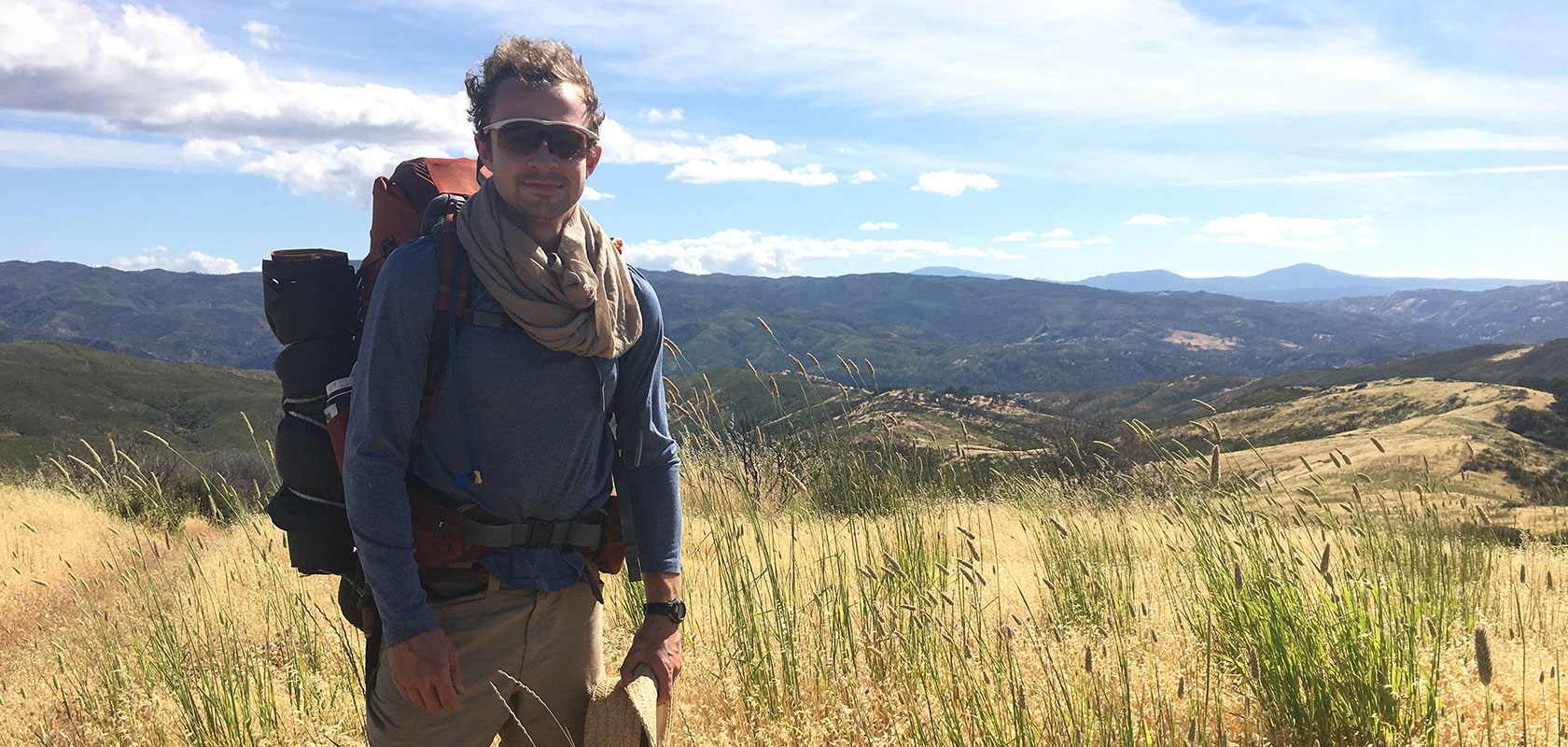
In our noisy, data-driven culture, Patrick Tolosky remains a philosopher.
He believes acknowledging our common humanity while helping people stay healthy is a noble cause, which it is the foundation of his interest in medicine. And though his passion for medicine stretches back to his childhood, his interest in philosophy was serendipitous—it occurred during his first year at Bates College when he eschewed the typical science track in favor of the humanities.
“First-year seminars at Bates covered random subjects ranging from robots to literature to sociology to advanced virology and were designed to be an introduction to both college and subject areas of interest,” says the first-year Geisel School of Medicine student. “I signed up for what I thought was a sociology class—on the first day I saw Philosophy Department on the syllabus and thought, ‘I can’t believe I signed up for a philosophy course!’”
Intrigued by questions without clear answers that arose during the course, Tolosky had “a thousand new questions without answers” by the course’s conclusion. “We live in a culture obsessed with answers for everything, but I think it’s valuable to ask good questions, especially when answers may be ambiguous,” he says. “They teach us to draw on fundamental commonalities, bringing together things that appear to be unrelated.” He also believes exploring these questions translates into being able to comfortably talk with patients about issues that don’t have straightforward answers.
This fits perfectly with his belief in the interdisciplinary nature of life itself, and how empowerment through health and wellbeing has the potential to break the cycle of poverty due to the financial burden of illness, which can continue for generations. Though committed to combating poverty through community activism, he admits there are no easy fixes.
But he believes being a physician gives him versatility in becoming a healer. “By walking with patients in myriad ways towards wellbeing, healthcare providers can catalyze the first step toward economic, political, and educational prosperity,” he says. Community-led development and grassroots organizations are essential to creating more equal societies, but are only as effective as their participants are healthy, and this intersection is where he feels he can make a difference.
Living and working with the Q’eros people while constructing a much-needed community medical clinic in the Andean region of Peru was transformative and inspiring—the child mortality rate in Q’eros is high and the region lacked a health care infrastructure to support the community’s knowledgeable and talented healers.
Though it was physically challenging to work at that altitude, Tolosky, who is fluent in Spanish, worked alongside community members participating in the construction project and lived with them and their families. In spite of the hardship in their lives, they were kind and welcoming.
"I know it may sound cheesy, but I believe the key to happiness in life is simplicity—I’m committed to that, though I don’t always achieve it."
- Patrick Tolosky
“When I think about that experience—of being present with them, listening to their stories, and playing soccer together, it was really intimate. Because our cultures were so different, I had so many questions about their religion and their community, but out of respect I didn’t ask them,” he recalls. “It’s easy to focus on differences, yet at the same time, when I watched Valerio intentionally dump dirt on top of Dionisio’s head from above during a work day, I laughed just as hard as everyone else. I think the Earth would be a more peaceful and supportive place if we (myself included) focused on such simple but revealing similarities.”
Building the medical clinic was vitally important, but for Tolosky this tangible connection to his philosophy of healthy communities with a simple lifestyle resonated with him, and he continues drawing inspiration from his time in Q’eros.
“Whenever I’m stressed about exams or quizzes, I think about that experience—how they let me into their beautiful way of life—and it’s nourishing,” he says.
Living simply and being present is something Tolosky is working hard to maintain—he believes jumping from one project to the next without being intentional comes at a personal cost. And philosophy, after all, encourages us to explore what it means to be human and to choose how we want to live our lives.
“I know it may sound cheesy, but I believe the key to happiness in life is simplicity—I’m committed to that, though I don’t always achieve it,” he says. “As a medical student, being present makes studying, which is really intense, more enjoyable. Appreciating life’s small pleasures, like a beautiful day or having a good conversation with a friend is nourishing when you aren’t distracted by cultural messages urging you to seek something more exciting or immediately benefitting your career development.”
Tolosky notes ignoring the siren call of doing something other than what you are doing isn’t easy, and it’s something he hasn’t yet mastered—it will likely be a lifelong journey, but he thinks learning to be “in the moment” will make him a better doctor.
“Once you start wishing you were somewhere else, regardless of where you are, you have already lost,” he says.